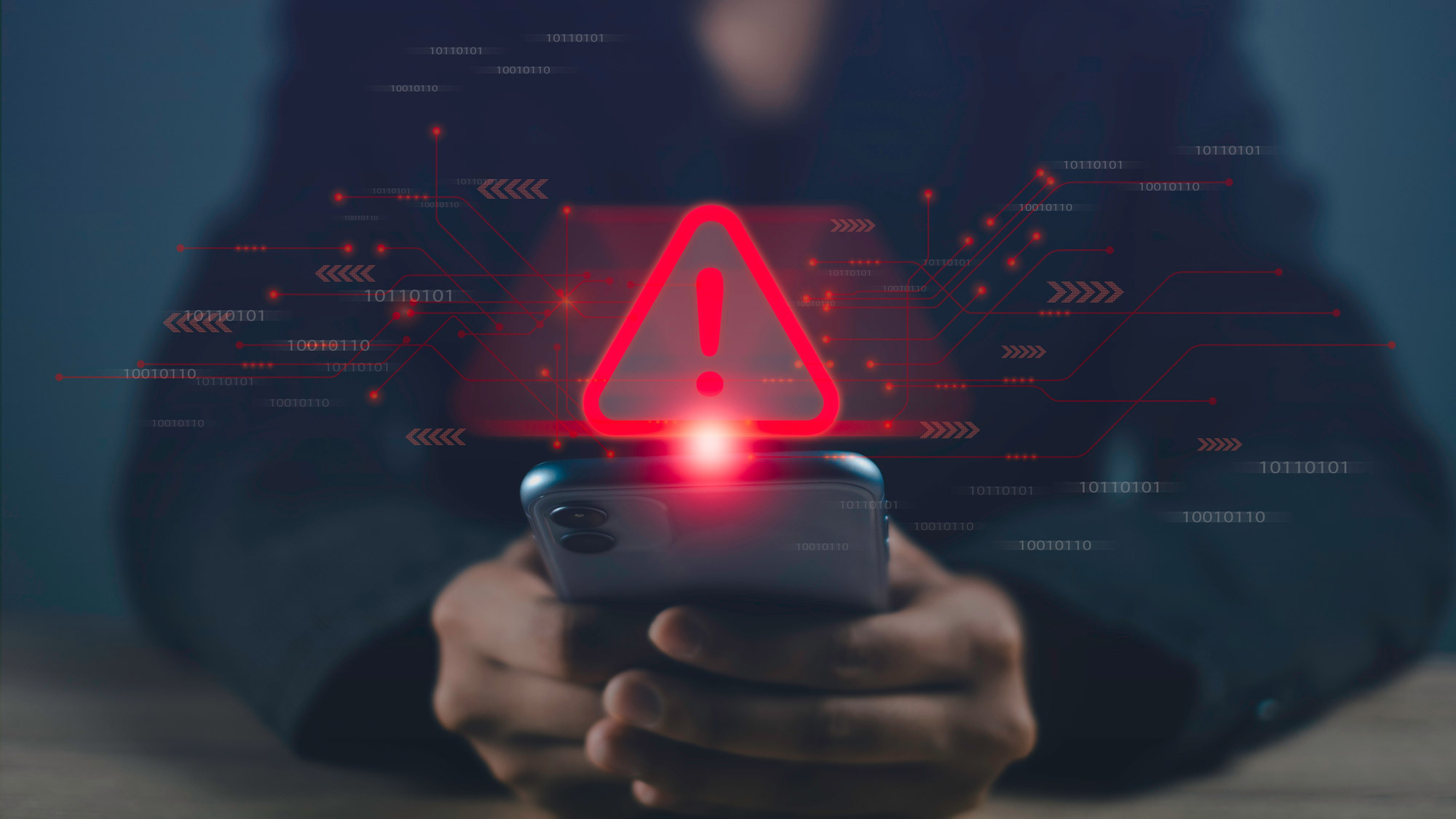FBI issues warning to all smartphone users — this dangerous new scam could be at your door
Here's how to stay protected against this new type of 'brushing' scam

Here at Tom’s Guide our expert editors are committed to bringing you the best news, reviews and guides to help you stay informed and ahead of the curve!
You are now subscribed
Your newsletter sign-up was successful
Want to add more newsletters?

Daily (Mon-Sun)
Tom's Guide Daily
Sign up to get the latest updates on all of your favorite content! From cutting-edge tech news and the hottest streaming buzz to unbeatable deals on the best products and in-depth reviews, we’ve got you covered.

Weekly on Thursday
Tom's AI Guide
Be AI savvy with your weekly newsletter summing up all the biggest AI news you need to know. Plus, analysis from our AI editor and tips on how to use the latest AI tools!

Weekly on Friday
Tom's iGuide
Unlock the vast world of Apple news straight to your inbox. With coverage on everything from exciting product launches to essential software updates, this is your go-to source for the latest updates on all the best Apple content.

Weekly on Monday
Tom's Streaming Guide
Our weekly newsletter is expertly crafted to immerse you in the world of streaming. Stay updated on the latest releases and our top recommendations across your favorite streaming platforms.
Join the club
Get full access to premium articles, exclusive features and a growing list of member rewards.
If you have a smartphone, you're a target. That's the thinking behind the latest scam going viral, where hackers use malicious text messages and packages you didn't order in a bid to steal your personal information and wipe out your financial accounts.
The Federal Bureau of Investigation issued a warning this week about a new type of "brushing" scam. "In a traditional brushing scam, online vendors send merchandise to an unsolicited recipient and then use the recipient's information to post a positive review of the product," reads a statement the FBI's Pittsburgh field office posted on X.
As annoying as fake reviews can be, now bad actors are taking things one step further, using this setup to siphon data from unsuspecting victims in a particularly insidious way. The difference boils down to the QR code in these packages, and it's a fresh reminder for why we could all stand to be more careful about how we use our phones to interact with the world around us.
"In this variation, criminals send unsolicited packages containing a QR code that prompts the recipient to provide personal and financial information or unwittingly download malicious software that steals data from their phone," the FBI said.
Ever heard of a "brushing scam?" There's a new version of it happening, and the FBI is warning the public. Criminals are sending unsolicited packages containing a QR code, and once scanned, victims provide personal and financial information while unknowingly downloading malicious… pic.twitter.com/3A1tQNIuW3August 11, 2025
The scammers often don't include a return address or any information about the name of the sender, which entices people to scan the QR code. They're betting on people being curious to learn more when a random package arrives at their doorstep.
Once scanned, the QR code collects personal and financial information about the victim while also downloading malware onto their phone. Attackers have used this method to quietly siphon off credit card numbers as well as credentials for bank accounts, securities trading accounts, and crypto accounts.
How to say safe from scammers

In its warning to smartphone users, the FBI offered several ways to avoid falling for this new type of brushing scam:
Get instant access to breaking news, the hottest reviews, great deals and helpful tips.
- Beware of unsolicited packages containing merchandise you did not order.
- Beware of packages that do not include sender information.
- Take precautions before authorizing phone permissions and access to websites and applications.
- Do not scan QR codes from unknown origins.
If you believe you've been the target of this kind of scam, you're urged to change your account profiles and request a credit report from a national credit reporting agency to identify possible fraudulent activity.
You can report fraudulent or suspicious activities to the FBI via its IC3 portal, just be sure to include as much information as possible, including: the name of the person or company that contacted you; methods of communication used, including websites, emails, and telephone numbers; and any applications you may have downloaded or provided permissions to on your device.
Likewise, if you want to protect yourself from this and other scams, then it might be worth investing in one of the best identity theft protection services. Besides helping you regain your identity after a serious incident, these services can also help you recover any funds lost to scammers. Some of them also included many of the same features found in the best antivirus software.
Although we often tend to think of online scams when it comes to our own safety, we also have to be careful of real-world scams like this one since they can be quite easy to fall for, especially if you weren't expecting scammers to target you in person.
Follow Tom's Guide on Google News to get our up-to-date news, how-tos, and reviews in your feeds. Make sure to click the Follow button.
More from Tom's Guide
- AT&T could pay $7,500 to customers in data breach settlement — how to get yours
- Over 190 million hit in UnitedHealth data breach — confirmed largest in history
- Booking.com phishing scam is infecting users with malware by using lookalike URLs — don't fall for this

Alyse Stanley is a news editor at Tom’s Guide, overseeing weekend coverage and writing about the latest in tech, gaming, and entertainment. Before Tom’s Guide, Alyse worked as an editor for the Washington Post’s sunsetted video game section, Launcher. She previously led Gizmodo’s weekend news desk and has written game reviews and features for outlets like Polygon, Unwinnable, and Rock, Paper, Shotgun. She’s a big fan of horror movies, cartoons, and roller skating. She's also a puzzle fan and can often be found contributing to the NYT Connections coverage on Tom's Guide
You must confirm your public display name before commenting
Please logout and then login again, you will then be prompted to enter your display name.
 Club Benefits
Club Benefits










